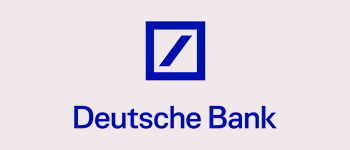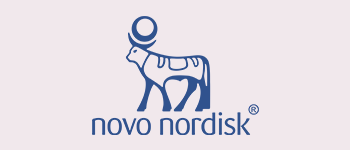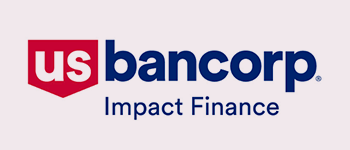


Over 585,500+
Over 585,500+
Over 585,500+
Over 585,500+
Over 585,500+ Alumni University-Wide
AACSB Accredited
Beloved Rutgers Community
Earn Your Degree - Propel Your Career
This 100% Online MBA program allows you work at your own pace, without disrupting your current schedule.
This 100% Online MBA program allows you work at your own pace, without disrupting your current schedule.
This 100% Online MBA program allows you work at your own pace, without disrupting your current schedule.
This 100% Online MBA program allows you work at your own pace, without disrupting your current schedule.
The Rutgers 100% Online MBA program offers flexibility, allowing you to progress at your own pace while juggling professional and personal commitments seamlessly.
- Collaborate with a dedicated support staff
- Interact closely with faculty and peers in intimate class settings
- Complete classes asynchronously
- Start in the Fall, Spring, or Summer
- Choose between full-time or part-time attendance options

Rutgers Tuition Rates
Online MBA Curriculum
The Online MBA curriculum consists of 42 credits (14 courses).
The Online MBA curriculum consists of 42 credits (14 courses).
The Online MBA curriculum consists of 42 credits (14 courses).
The Online MBA curriculum consists of 42 credits (14 courses).
The Online MBA program features a comprehensive curriculum, comprised of 42 credits, spread across 14 courses.
Our curriculum empowers you to develop a shared understanding of essential concepts crucial for effective managerial decision-making. Upon completing prerequisite courses, students have the flexibility to choose elective courses, delving deeper into specialized business subjects. Additionally, these electives offer the opportunity to pursue one of eight industry-focused certificates, further enhancing your expertise.
For the course descriptions, see the Course Catalog
- Microsoft Excel
- Management Economics
- The Story of Business
5 Required Courses:
- Accounting for Managerial Decisions
- Financial Management
- Business Analytics
- Strategic Management
- Foundations of Leadership & Teamwork
Select 5 of 6 available courses (5 courses required):
- Operations & Supply Chain
- Fundamentals of Talent Management
- Managing in the Global Economy
- Information Technology Strategy & Project Management
- Marketing Management
- Financial Reporting & Analysis
RSBC now offers six one-credit online courses in collaboration with Professional and Executive Education at Rutgers (PEER) Team. These courses are aimed at enhancing your skillsets for immediate workplace applications. All one-credit courses will be offered in asynchronous online mode and will run for 7 weeks. You may mix courses from fall and spring to create a three-credit elective course for your program. These courses are open to MBA (except PMBA), MSBA, and MAcc students.
Lean Six Sigma Green Belt Certification Part I
Industries from Healthcare to Logistics to Pharma to Manufacturing to Government are using Lean Six Sigma (LSS) to meet the ever-increasing demand to improve operational performance. These skills can be used across all functions in their organizations, making it suitable for front-line workers, supervisors, managers, and executives. This course is designed to introduce the concepts, tools and strategies associated with LSS that will enable learners to participate as valued members of LSS teams that organizations are currently deploying.
Lean Six Sigma Green Belt Training Certificate Part IIThis course is designed for practical application of the concepts, tools, and strategies learned in “Part I – LSS Green Belt Training” and includes the implementation of a real-world process improvement project, with the coaching of a Rutgers Black Belt throughout the project. The completed project from this course can be included in a learning portfolio that you share with current or future employers.
Data Visualization with TableauIn this course, you will be introduced to the field of data visualization and the various tools Tableau Public offers. Through concepts and exercises, you will learn to identify datasets to connect to, explore, analyze, filter and structure your data to create your desired visualizations.
Prompt Engineering and Generative AI for ProfessionalsChatGPT is one of many Generative AI tools that are being integrated into the workplace of the 21st century. This course is designed to prepare you for success in the workplace by providing deep, hands-on knowledge of prompt engineering – the process of structuring text that can be interpreted and understood by a generative AI model – a critical skill being applied across almost all job functions in today’s workplace. This hands-on, project-abased course will enhance your ability to perform your job more efficiently and effectively while supporting your career growth. You will tackle real-world challenges and learn to craft persuasive, compelling prompts that drive action and inspire change.
Business Process RedesignThe pace of change in the business world brought on through rapid changes in technology and the globalization of the business landscape has accelerated to the point where initiatives capable of achieving performance improvements cannot keep up. Breakthrough performance gains are the only way to equal or exceed these changes. These performance gains can be achieved through the redesign of existing processes, which recognize the fit between the work, the “worker,” and the culture of the organization. Business process redesign is a holistic, systematic approach that can lay the groundwork to achieve performance gains that will increase the probability an organization will create a sustainable future for itself.
Introduction to PythonThis course introduces the Python language to students using an informatics focus and data-oriented exercises that can be useful to students planning to take courses that use Python to build sophisticated data analytics solutions, e.g., machine learning for business environment. As an end user, this course will help in applying Python to a more productive way of handling data and information in most any work or research environment.
Sales Methods and Tools (Using Salesforce)This course introduces structured sales frameworks, the strategy behind sales, and an overview of different sales methodologies that you can rely upon for repeatable success in the field. You will obtain hands-on experience with industry-standard tools that companies are looking for in new hires and for promoting internal candidates as you acquire and apply skills in prospecting, managing the sales pipeline, customer relationship management, and developing winning sales pitches.
Schedule a One-on-One Meeting with an Admissions Coach
Schedule a One-on-One Meeting with an Admissions Coach
Schedule a One-on-One Meeting with an Admissions Coach
Schedule a One-on-One Meeting with an Admissions Coach
Learn more about the Online MBA Program
Schedule Meeting NowGet the information you need to start advancing your Future
Attend a Live Group Info Session or Event
Attend a Live Group Info Session or Event
Attend a Live Group Info Session or Event
Attend a Live Group Info Session or Event
Attend a Live Group Info Session or Event
No events are posted at this time.
Alumni Testimonials

I completed my online MBA from Rutgers–Camden because it allowed me to work full-time, stay in New Jersey and most importantly, the reputation of Rutgers–Camden MBA stands out amongst others in the area.
Ryan B.
Class of '16, Online MBA

The Rutgers Online MBA program was challenging, the professors engaging, and the experience one of a kind. I was able to visit South Africa with a cohort of peers while still having the flexibility given by the online experience. I would recommend the program.
Gil B.
Class of '18, Online MBA
Rutgers MBA graduates lead some of the nation's Most Admired Corporations
You'll find our graduates at work in places like these
You'll find our graduates at work in places like these
You'll find our graduates at work in places like these
You'll find our graduates at work in places like these
You'll find our graduates at work in places like these:































Tailor Your Degree to Your Career Goals With Certificates
The Rutgers Online MBA program equips you with the essential tools to tackle today's and tomorrow's business challenges. One of its standout features is the availability of Certificates, offering you the opportunity to explore specialized areas aligning with your career aspirations and objectives. Below is our current list of certificates.
Check Out Some of Our Most Frequently Asked Questions
Online MBA Class Profile
Average GPA: 3.2
Average Age: 34
Average years of work experience: 11 years
Students come from a variety of academic backgrounds, including business, engineering, social sciences and arts and humanities. Our students are currently employed by a number of companies in the Delaware Valley area, including Lockheed Martin, Campbell’s Soup, PHH Mortgage, Virtua Health Systems, Computer Science Corporation, Subaru, Comcast and L-3 Communications.
Rutgers School of Business–Camden
Welcome from the Associate Dean for Graduate Programs
Welcome to the Rutgers School of Business-Camden! Embark on a transformative journey with the Rutgers Online MBA, designed to reshape your perspectives and elevate both your professional and personal growth, all at your own pace.
Best Wishes,

Snehamay Banerjee, PhD
Associate Dean & Professor of Management

Don't Wait!
Enroll Today and Propel Your Future Forward
- Advance your career with a prestigious program
- Gain the degree & skills you need to stand out in business
- Move your career faster with accelerated schedules
- Learn from & grow your network with esteemed Rutgers faculty



